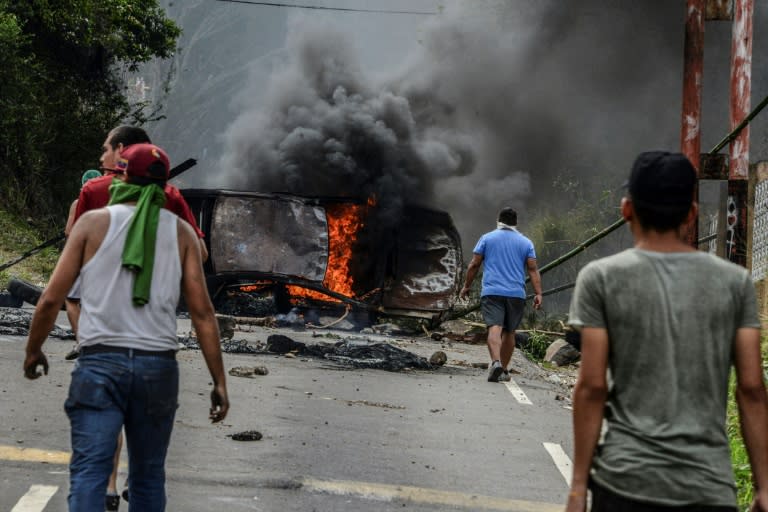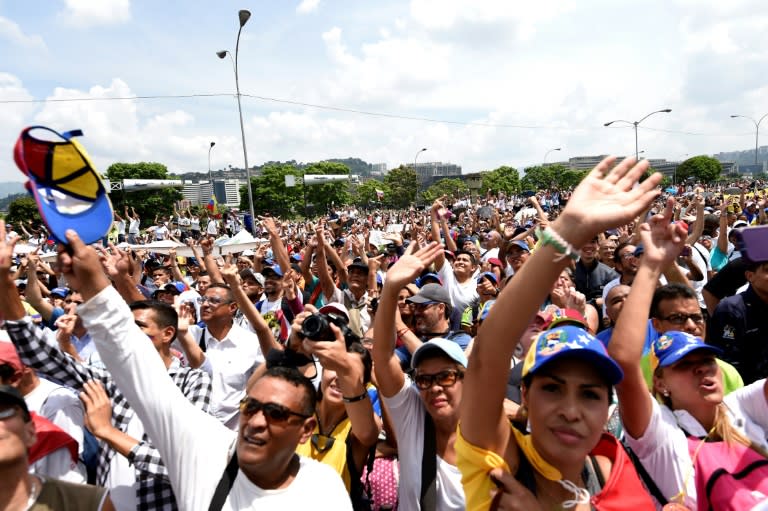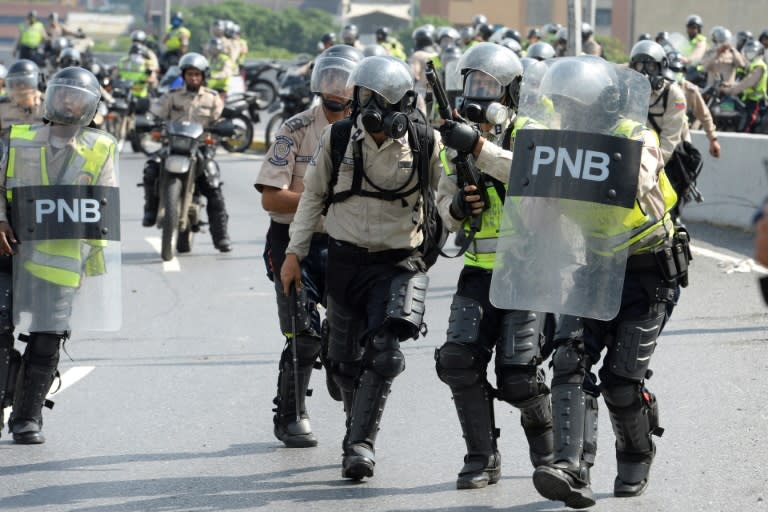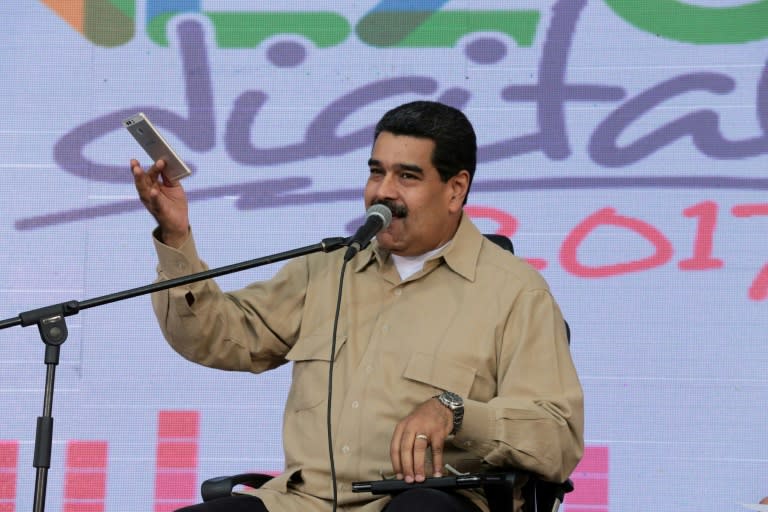Three killed in latest Venezuela protests
Three people were killed in Venezuela on Monday in another day of nationwide protests against leftist president Nicolas Maduro, raising the death toll to 24 in weeks of anti-government demonstrations. The latest casualties come on a day anti-Maduro demonstrators blocked major roads in the South American nation, and as the opposition called for a mass protest in Caracas on Wednesday. The steady stream of anti-government marches, which began on April 1, usually begin peacefully but then degenerate into clashes with security forces and even looting at night. Two government trucks in eastern Caracas were set alight on a freeway by masked protesters who poured oil on the road. Police nearby did not immediately intervene, AFP journalists saw. Elsewhere in the capital, riot police fired tear gas at another group of protesters who threw stones at them. "We're blocking roads so that Maduro understands that he must leave. He has us enduring hunger. I can't find milk for my 16-month-old baby," said Amalia Duran, 41, a resident of the working class Caracas neighborhood of Petare. "I'm here because I'm tired," added Yorwin Ruiz, 26, also protesting in Caracas. "I've been to more than 20 pharmacies searching for a simple antibiotic." Ruize hoped that with the continuous protests "we at least can get elections." - Call for Wednesday demo - Opposition lawmaker Miguel Pizarro called for a mass demonstration on Wednesday, which he said will head downtown to protest outside one of three government offices -- but he refused to say which because he didn't want to give the government "72 hours to prepare" for the demonstrators. Hundreds of people have been arrested and injured in the clashes, which the government and opposition blame on each other. However, the majority of demonstrators, who numbered in the thousands, rallied peacefully. The return to violence in the Venezuelan streets after a weekend lull will further stoke international concern over the country, whose economy is imploding despite vast oil reserves. Maduro, who says Venezuela is the victim of a US-led capitalist plot, has stepped up a nationalization drive started by his late predecessor Hugo Chavez that has swept up plants and assets of foreign companies, including American ones. Authorities have also curbed the power of the National Assembly, which is dominated by opposition lawmakers. - Deaths in western Venezuela - Jorge Rodriguez, a senior pro-government politician, told state-run VTV late Monday that a young man was shot dead in the western city of Merida. Prosecutors earlier announced the death of two men, aged 42 and 54, one in Merida and the other in the town of Barinas. Government officials claimed two victims were government supporters, while opposition leaders said the Barinas victim was in an anti-Maduro demo targeted by pro-government "paramilitaries." Ombudsman Tarek William Saab said that "gunshots rained" against a "peaceful concentration" of government supporters in Merida. Opposition leader Henrique Capriles said the government is seeking to undermine legitimate protests, and dismissed the ombudsman as a government "puppet." The government has ruled out a presidential election this year, maintaining that Maduro will see out his term into 2018. Elections for regional governors due in December have been postponed. Maduro said Sunday he wanted the regional elections "now" but did not give any dates. "I am ready for whatever the electoral authorities say," he insisted. - 'No more repression!' - The courts and electoral authorities have fended off efforts to remove Maduro since the opposition took over the legislature in January 2016. Analysts say street protests are one of the few levers the opposition has for change. The captain of Venezuela's national football team, Tomas Rincon, joined other sports figures to appealing for an end to the crisis. "No more repression!" he wrote on Twitter, offering himself "to be a driving force in the rebirth of our country." Miguel Cabrera, a major league baseball player, wrote on Instagram that his native country was "killing itself and those who have power in Venezuela are unable to do anything." Maduro won the 2013 election by a narrow margin over opposition candidate Henrique Capriles. But Maduro's popularity has since plummeted. A recent survey by pollster Venebarometro indicated that seven out of 10 Venezuelans disapprove of Maduro. "Peaceful protests across the country will continue until Mr Maduro respects the constitution and ends his internal coup," Capriles tweeted Monday. "If there is no answer from Maduro's corrupt drug-trafficking leadership, at the end of the day we will announce further action."






